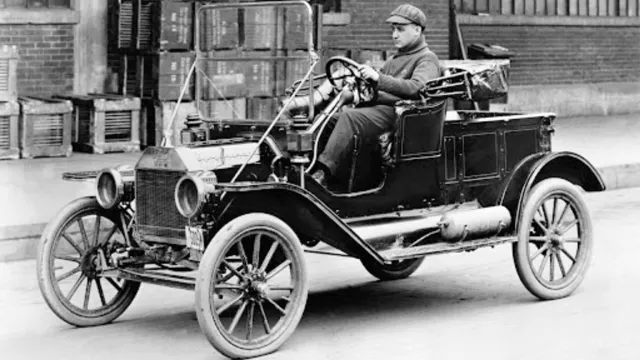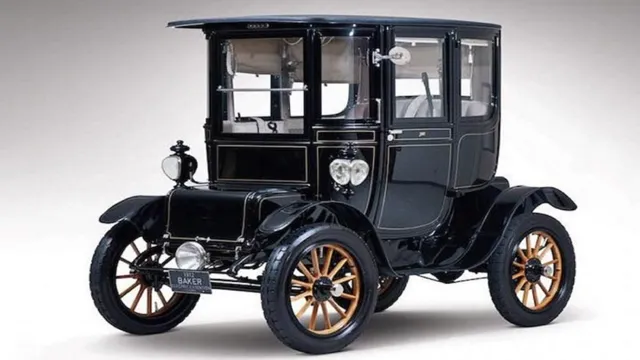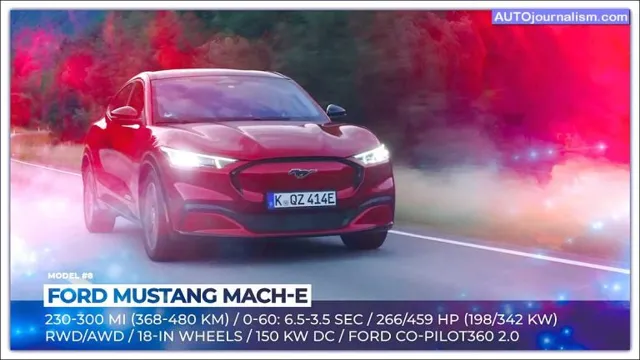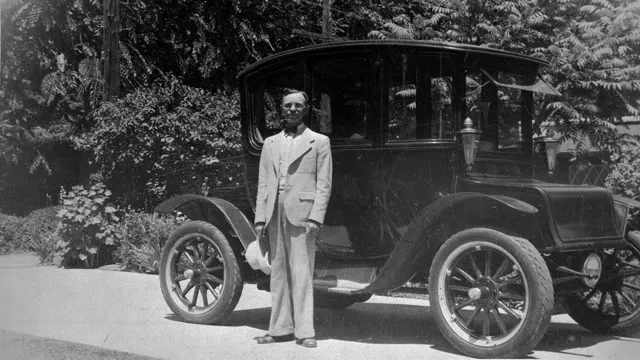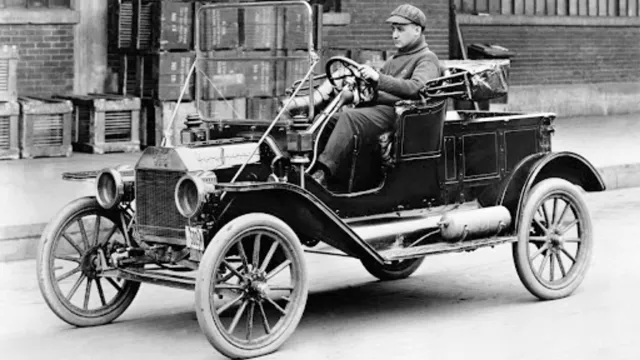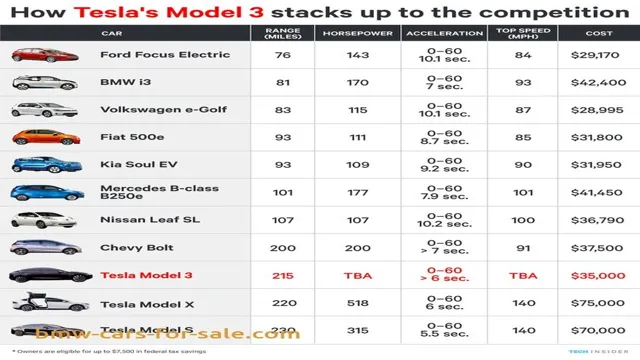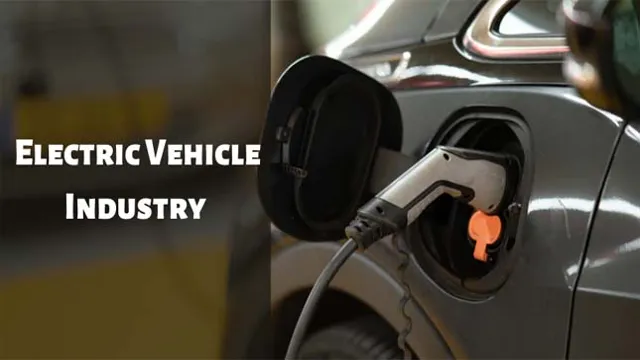The Electrifying Legacy: Tracing the Fascinating History of Electric Cars in a Captivating Book
Electric cars, also known as electric vehicles (EVs), are rapidly gaining popularity today as society’s concern for the environment increases. However, the history of electric cars goes back as far as the 1830s when Robert Anderson, a Scottish inventor, created the first electric carriage. Electric cars were popular in the early 1900s, even more than gasoline-powered cars, because they were easy to start and maintain, quieter, and produced less pollution.
However, improvements in the gasoline-powered car, including the invention of electric starters, led to the decline of electric cars. It wasn’t until the 1990s when electric cars started to make a comeback. Governments around the world began to offer incentives for buying electronic cars, and manufacturers invested in research and innovation.
As a result, electric cars have become increasingly popular in recent years, with many major automobile companies launching their own models, such as the Tesla Model 3, the Nissan Leaf, and the BMW i In this comprehensive guide, we’ll delve into the history of electric cars, explore the early pioneers and their inventions, the factors that led to their decline, and the progress made in recent years. We’ll also look at how EVs work, their benefits, and the future of electric cars.
So whether you’re an EV enthusiast or just curious about the history and future of electric cars, this guide is for you.
Early Beginnings
If you’ve picked up an electric car history book, you might be interested to know that the earliest experiments with electric vehicles began in the early 1800s. Though it wasn’t until the late 19th century that electric cars were mass-produced and marketed to the public. In 1832, Scottish inventor Robert Anderson created the first crude electric carriage, powered by non-rechargeable primary cells.
In the 1890s, electric cars began to gain popularity because they were quieter, cleaner, and easier to operate than their gasoline-powered counterparts. However, they had a major drawback: the batteries couldn’t hold a charge for long. As a result, electric cars were often used for short trips in cities.
Despite these challenges, electric cars continued to be used, especially in Europe. And today, the electric vehicle industry is thriving, with more and more drivers making the switch to electric cars for both environmental and economic reasons.
Nineteenth Century Electric Cars
Electric cars may seem like a relatively new invention, but they actually have a long history dating back to the 19th century. Early attempts at creating electric cars were made as far back as the 1830s, and throughout the century experiments were carried out to improve the technology. A major breakthrough occurred in 1881 when French engineer Camille Alphonse Faure invented the lead-acid battery, which greatly improved the efficiency of electric vehicles.
As more advanced batteries were developed, electric cars began to gain popularity, particularly in urban areas where they could be charged easily. However, electric cars ultimately lost out to gasoline-powered vehicles due to the lower cost and easier availability of gas. Nonetheless, the early development of electric cars laid the groundwork for the modern electric vehicle revolution we are experiencing today.
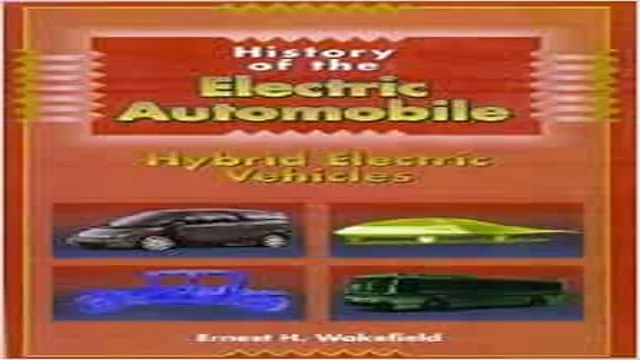
The Rise and Fall of Electric Cars in the Early Twentieth Century
Electric Cars, Early Twentieth Century Electric cars had their early beginnings in the 1880s and became popular in the early twentieth century, before ultimately falling out of favor with the rise of gasoline-powered vehicles. Electric cars offered many advantages over their gas-powered counterparts, including fewer emissions, less noise, and easier operation. Early models, such as the Columbia Runabout, could reach speeds of up to 25 miles per hour and travel around 60 miles on a single charge.
Despite these advantages, the higher cost and limited range of electric cars ultimately proved to be their downfall. As the availability of gasoline-powered vehicles increased and the price of gasoline fell, they quickly replaced electric cars as the preferred mode of transportation. However, with the recent push for sustainable energy and the rise of electric car technology, we are seeing a resurgence of interest in this early innovation and a new hope for a greener future.
Renewable Energy Boom
As the world moves towards a renewable energy boom, electric cars are poised to become a defining feature of our transportation landscape. It’s amazing to think that just a few short decades ago, the idea of driving an electric car seemed like science fiction. But thanks to advances in battery technology, charging infrastructure, and increased awareness about the environmental impact of our transportation choices, electric cars are now a practical reality for millions of people around the world.
In fact, the electric car history book is being rewritten as each year, new models with longer ranges and more features are released. And while some may argue that electric cars are still too expensive or not practical for long-distance travel, it’s clear that their popularity will only continue to grow as renewable energy becomes more affordable and widespread. With the potential to reduce carbon emissions, improve air quality, and save drivers money on fuel costs, electric cars could soon be the norm rather than the exception on our roads.
Electric Cars in the 21st Century
Renewable Energy Boom The 21st century has been characterized by a significant shift toward renewable energy. This renewable energy boom has played a crucial role in making electric cars a viable option for consumers. With the increasing affordability and accessibility of clean energy sources such as wind and solar power, electric cars have been able to overcome one of their major hurdles: range anxiety.
This issue has been addressed through the development of better batteries, which have extended the driving range of electric cars to hundreds of miles. The switch to renewable energy has also made electric cars more attractive from an environmental standpoint since they produce no emissions while in use. As more countries set ambitious targets to reduce carbon emissions, the demand for electric cars is expected to continue to grow, encouraging further innovation in the sector.
The renewable energy boom has also led to the creation of new charging infrastructures, making it easier and quicker to charge electric cars on the go. With the increased use of renewable energy, electric cars are set to become even more accessible to the average consumer, marking an exciting new chapter in the history of transportation.
The Impact of Government Regulations on the Electric Car
The impact of government regulations on the electric car has been significant in recent years, particularly with the renewable energy boom. As consumers become increasingly aware of the effects of traditional fossil fuels on the environment, the demand for cleaner, more sustainable energy sources has grown. Governments around the world have responded by implementing policies aimed at promoting the use of electric cars and reducing greenhouse gas emissions.
For example, in the United States, the federal government offers tax credits and rebates to incentivize the purchase of electric vehicles, as well as funding for research and development in the clean energy sector. The renewable energy boom has also led to advancements in battery technology, allowing for longer driving ranges and more efficient charging times. As electric cars become more popular and affordable, they are poised to revolutionize the transportation industry and play a significant role in reducing global carbon emissions.
However, there are still challenges that must be addressed, such as the availability of charging infrastructure and the overall cost of electric vehicles compared to traditional gas-powered cars. Despite these hurdles, the impact of government regulations on the electric car has been a catalyst for change in the industry, paving the way for a more sustainable future.
Tesla’s Contributions to the Electric Car Industry
Renewable Energy Boom Tesla has significantly contributed to the growth of the electric car industry by sparking a renewable energy boom. They made a breakthrough in battery technology, offering the world’s first long-range and affordable electric car. With the introduction of their Model S sedan, electric cars were no longer a futuristic dream.
Instead, they became a practical option for consumers. Tesla’s advancements have also spurred the development of renewable energy infrastructure such as charging stations and solar panel installations. Tesla is also leading the charge towards sustainable energy by producing solar roofs.
While the journey towards carbon neutrality is still a long one, Tesla’s contributions to the renewable energy boom have been significant. They have inspired fierce competition and innovation in the market, which not only benefits the consumer but the environment as well.
Future of Electric Cars
Electric cars have come a long way since their humble beginnings in the early 1800s. Today, they’re found in dealerships all over the world and their popularity is only growing. As more and more drivers switch to electric vehicles, there’s no doubt that the future of automobiles is electric.
Many experts predict that within the next few decades, electric cars will have completely taken over the roads. In fact, it’s likely that there will be entire history books dedicated to the rise of the electric car. These books will tell the story of how electric vehicles went from being niche products to mainstream alternatives to gasoline-powered cars.
They will also explore the technology behind electric cars, including advancements in batteries, charging infrastructure, and electric motors. As we move forward into this new era of transportation, it’s exciting to think about all of the possibilities that lie ahead. From self-driving cars to hyper-efficient EVs, the future of the electric car is looking brighter than ever.
Advancements in Battery Technology
As the world moves towards greener alternatives, electric cars are becoming more common. However, one of the major concerns with electric vehicles has been their battery life and charging capabilities. Advancements in battery technology have brought about exciting innovations that could transform the future of electric cars completely.
With new battery designs, vehicles are becoming more efficient and have longer ranges, making them more practical and reliable for everyday use. The possibility of charging electric cars faster than ever before is also on the horizon, which could make them more convenient for long journeys. Additionally, the use of solid-state batteries is being explored, which could further increase efficiency and safety.
Overall, the future of electric cars looks promising, and we can expect to see exciting new developments in battery technology in the coming years.
Increasing Infrastructure for Electric Cars
Electric Cars The future of electric cars is bright, but one of the biggest challenges we face is the shortage of charging stations across the country. In order to increase the use of electric cars and reduce dependence on fossil fuels, it is necessary to invest in infrastructure that supports their growth. Manufacturers and governments are taking steps towards this goal by making electric cars more affordable and encouraging their adoption.
However, without an adequate public charging network, the real potential of electric cars cannot be realized. This is why initiatives to increase the number of charging stations are so important. By building more charging stations, electric cars become more viable for longer trips and help to provide a more sustainable future for our environment.
With the right investment in charging infrastructure, electric cars will play a key role in reducing our carbon footprint and shaping a greener future.
Best Electric Car Models of All Time
Are you looking for the ultimate electric car history book? Look no further! In the past few decades, we’ve witnessed some incredible electric car models that have revolutionized the auto industry. Starting with the Tesla Roadster, we all knew that electric cars were the future of sustainable transportation. With advancements in technology, we now have models like the Chevrolet Bolt, Nissan Leaf, and the Hyundai Kona Electric, all of which offer incredible EV driving experience.
These cars have the power to bring about environmental change and serve drivers in ways that are both economic and efficient. As technology continues to improve, we can’t help but look forward to some of the most exciting launches in the EV industry, like the anticipated Model S Plaid, which offers a range of over 500 miles. It’s safe to say that the history of electric cars is far from complete, and we can’t wait to see what’s next! So, if you’re interested in learning more about electric cars, consider picking up an electric car history book and dive into the evolution of this incredible technology.
Conclusion
As we close the chapter on the history of electric cars, one thing is abundantly clear: the future is electric! From primitive electric vehicles in the 19th century to modern EVs with cutting-edge technology, we have come a long way. As the world looks for cleaner and sustainable alternatives to gasoline-powered cars, electric vehicles are poised to dominate the automotive industry. With advancements in battery technology, charging infrastructure, and government incentives, EVs are becoming more accessible and affordable every day.
The electric car is no longer just a novelty; it’s a viable option that offers superior performance, efficiency, and environmental sustainability. So, let’s plug in and buckle up, because the journey of electric cars has only just begun!”
FAQs
What is the history of electric cars?
Electric cars have a long history that dates back to the 1800s, with early inventors like Thomas Davenport and Robert Anderson. However, it was not until the 1990s that electric cars became more widely available and popular.
What is the difference between a hybrid car and an electric car?
A hybrid car uses both a gasoline engine and an electric motor to power the vehicle, while an electric car is solely powered by an electric motor and a rechargeable battery.
Who invented the first electric car?
The first practical electric car was invented by Thomas Davenport in 1835. However, the modern electric car movement can be traced back to the late 1990s with the introduction of the Toyota Prius and Tesla Roadster.
How has the technology of electric cars evolved over time?
Electric cars have seen significant advancements in technology over the years, including improvements in battery technology, electric motor efficiency, and charging infrastructure. These advancements have led to increased driving range, faster charging times, and greater overall performance.

